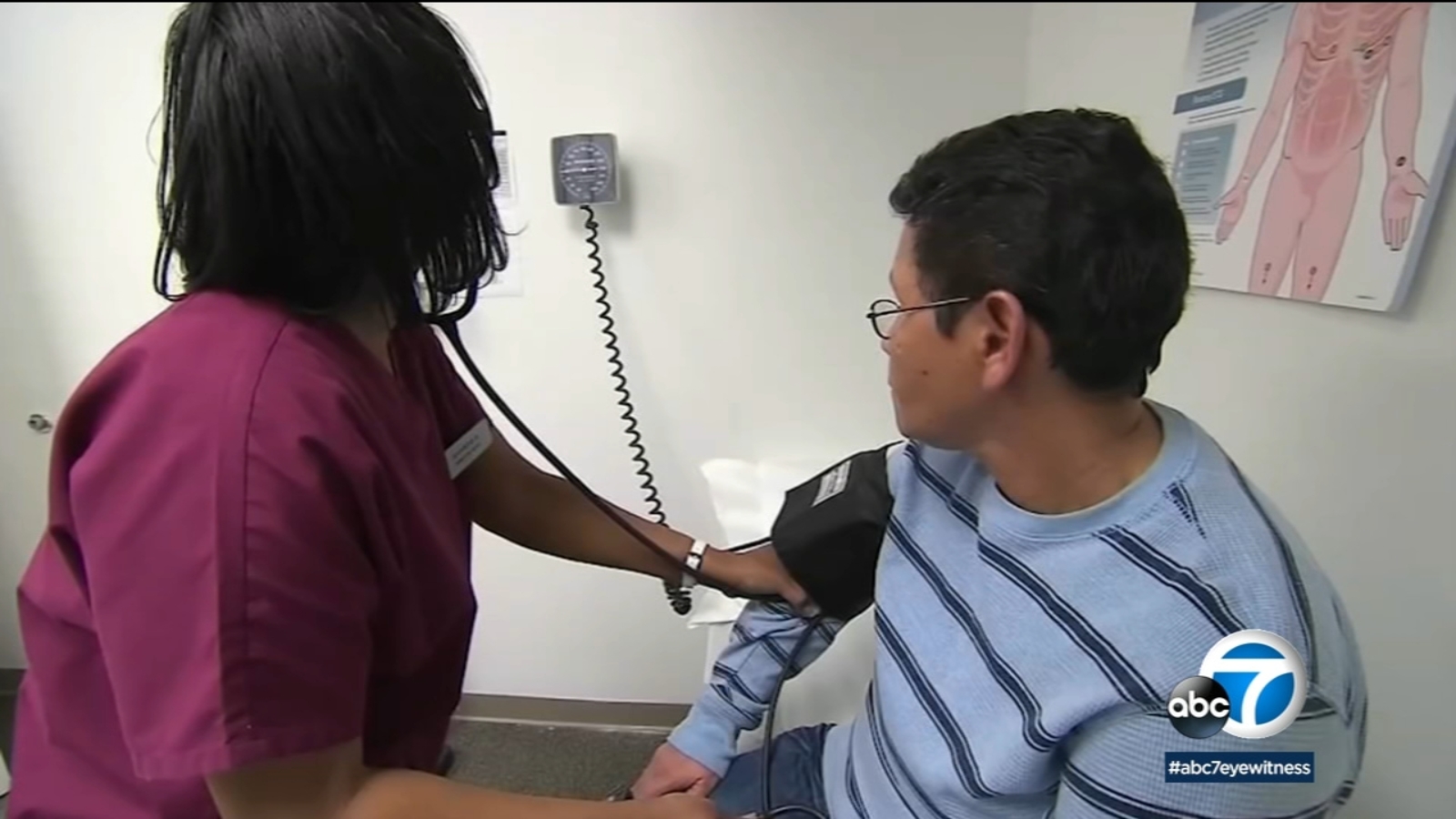Blood
Natural ways to lower high blood pressure might be better than medicine, researchers say
LOS ANGELES (KABC) — A blood pressure reading of 130 over 80 or more is considered high and if not controlled, it can lead to an increased risk of heart disease and stroke.
However, there are natural ways you can lower your blood pressure without medications. Only about one in four of the 122 million Americans with high blood pressure have their condition under control.
To manage this condition, many turn to drugs.
“Medications can be tough to take. They can be complicated to take,” said Dr. Daniel Munoz, a cardiologist at Vanderbilt University Medical Center.
Doctors say just reducing your topic number by five points can make a huge difference.
“You decrease your chance of a future stroke by anywhere from 10% to 13%,” said neurologist Dr. David Hannauer with Kaiser Permanente South Bay Medical Center.
People overlook the natural ways to lower blood pressure. First, experts recommend moving – a lot.
A study from Japan found that getting moderate physical exercise for only 30 to 60 minutes per week decreased blood pressure for those with untreated high blood pressure. Exercising for 61 to 90 minutes reduced it even further.
“At six months, the exercise component exceeds the benefits of medications,” said Hannauer.
In time, regular exercise can be more effective than medicine.
Next, experts recommend cutting salt intake.
Salt sensitivity occurs when the body fails to eliminate excess salt. The American Heart Association recommends an intake of no more than 2.3 grams of salt per day or less. Even a moderate amount of weight loss can reap huge results.
“If everybody in America lost 10 pounds, the health of this nation would skyrocket,” said Dr. William C. Roberts with the Baylor Heart and Vascular Institute.
Researchers found that even losing around 4.5 pounds resulted in lowered blood pressure – 42% of the participants no longer had high blood pressure after losing the weight. Also, find ways to stress less.
“Untreated stress tends to cause elevated blood pressure, which then translates into issues where you have an increase in stroke and heart attack risk,” said Hannauer.
While coffee can temporarily cause blood pressure to rise, a new study suggests that moderate coffee drinkers had a lower risk of cardiovascular issues than non-coffee drinkers. Why? Scientists think one factor might be that the antioxidants in coffee heighten nitric oxide, which allows blood vessels to dilate, lowering blood pressure.

